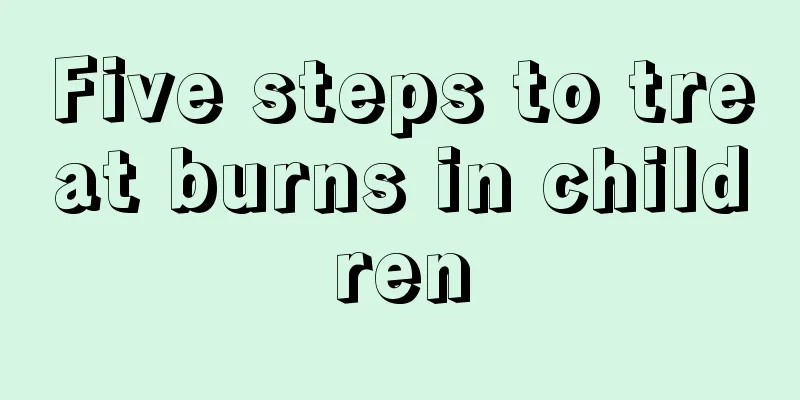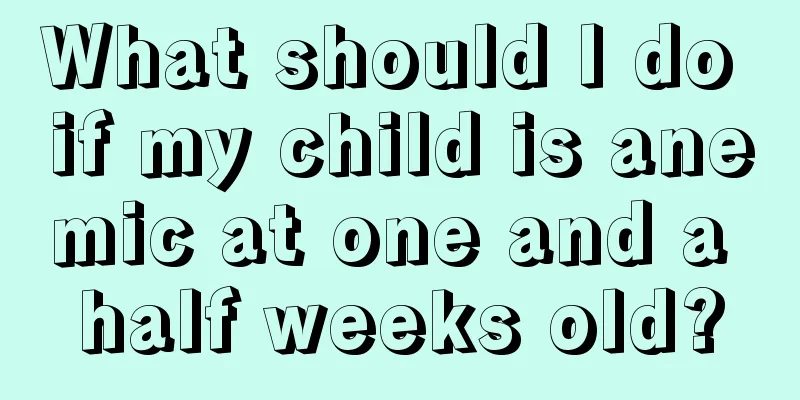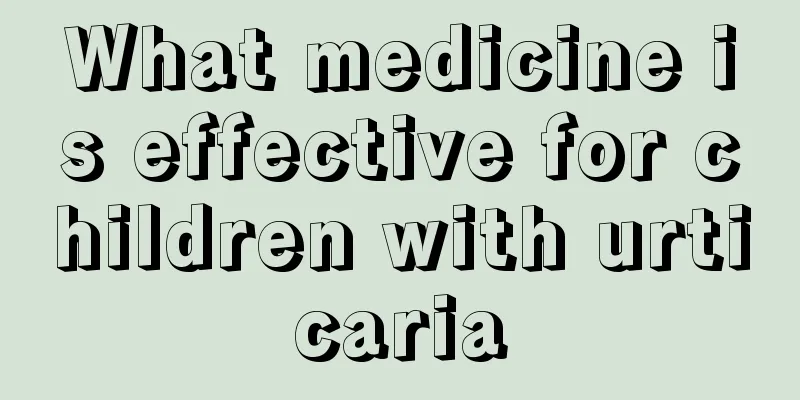What should I do if my 8-month-old baby has a fever?

|
Many people ask what to do if a child has a fever? Babies are what their mothers love the most. After a mother carries them for ten months, she will definitely take great care of and love them. If their babies have a fever, the mother will definitely be in pain and feel distressed. So, if mothers find that their babies have a fever, and the fever is very high, what should they do? Moms, don’t worry. Read the following text to learn some common sense about children’s fever and what to do specifically. 1. Treat the primary disease Fever is a manifestation of disease, not an independent disease. Therefore, when treating children's fever, we should not simply focus on reducing the fever, but should actively look for the cause of the fever and treat the primary disease. 2. Antipyretic treatment Children with persistent high fever need appropriate cooling measures to avoid brain cell damage and possible adverse effects due to excessively high body temperature. It is especially necessary to take cooling measures in a timely manner for children with a history of febrile convulsions and children with high fever and extreme irritability. The following situations in children with fever require vigilance or emergency treatment: febrile convulsions; fever in infants under 3 months old; fever lasting more than 5 days; fever > 40°C and cannot be effectively reduced within 2 hours by acetaminophen or ibuprofen; obvious changes in children's behavior: such as not liking to play, loss of appetite, rarely talking, indifference to surrounding things or sudden special behavior that has never appeared before; less urine, indicating dehydration, such as infants wet < 3 diapers a day, or older children have not urinated for 8 to 12 hours. 3. Common cooling measures include: (1) Physical cooling: Warm water bath, ice cubes in a waterproof plastic bag wrapped in a dry towel and applied to the head and neck, and also to the armpits and groin. It is not recommended to use cold water or alcohol for bathing. (2) Drugs for reducing fever include acetaminophen (for children > 3 months old) or ibuprofen (for children > 6 months old), which can be taken orally or rectally. The medicine can be used every 4 to 6 hours. Aspirin should be used with caution in children (it can cause Swiss syndrome). It is generally not recommended to use hormones alone to reduce fever. It is not advisable to use drugs to reduce fever in newborns because their body temperature regulation function is not yet fully developed. (3) Traditional Chinese medicine for cooling down: acupuncture, oral administration, external application or enema of traditional Chinese medicine, and massage. (4) Artificial hibernation therapy is a cooling method that combines drugs (chlorpromazine and promethazine mixed in equal amounts) and physical cooling. Artificial hibernation has a powerful protective inhibitory effect on the central nervous system, which can make the body fall asleep, lower the temperature, reduce the metabolic rate and oxygen consumption. It is mainly suitable for patients with persistent high fever or convulsions caused by severe infection, such as toxic bacterial dysentery, viral encephalitis, purulent meningitis, etc. 4. Other symptomatic supportive treatments (1) Provide a comfortable cooling environment. Place the child in a quiet, cool, well-ventilated environment. The child should wear cool and breathable clothing. Do not cover the child with a blanket to induce sweating. (2) Replenish water and electrolytes in time to maintain smooth bowel and bladder function. (3) Provide children with nutritious, light, and easily digestible food. Therefore, if your baby has a fever, the most important thing is to lower the temperature through the above methods. After the temperature drops, you can go to the hospital to seek help from a doctor. If the high fever persists, you can go to the hospital for emergency treatment. The baby is the most important. Do mothers know what to do? |
<<: What should I do if my child has a cold, runny nose or stuffy nose?
>>: What should I do if my child has a sore throat and cough?
Recommend
What causes dandruff in babies?
It is well known that adults have an overly activ...
Causes of cowardice and inferiority complex
In the process of taking care of their children, ...
Why do children urinate frequently at night?
I believe that anyone who has been a mother knows...
Why does a child have blisters on his body when he has a fever?
Children's physical fitness is far from being...
How to treat gingivitis in children?
Gingivitis is a common oral disease in our lives....
What to do if your 9-month-old baby has anorexia
When the baby is just born, generally speaking, h...
What medicine should I take for my baby's stomach ache?
In daily life, many babies often have stomach pai...
What should children eat to relieve constipation?
It is painful for children to have difficulty def...
What should I pay attention to when my baby changes his teeth?
Babies usually start to change their teeth when t...
Massage for children to treat cough
Children's cough is very difficult to cure. I...
Why is my baby breathing heavy?
For babies, no matter what kind of problems the h...
Symptoms of malnutrition in children
Many children are prone to food stagnation. This ...
What to do if your child has red spots on his tongue
What should I do if my child has red spots on his...
Three-month-old baby has blood on the tip of his tongue
Many parents will find that their three-month-old...
What to do if a girl's lower body itches and hurts
Gynecological diseases do make many women worried...









